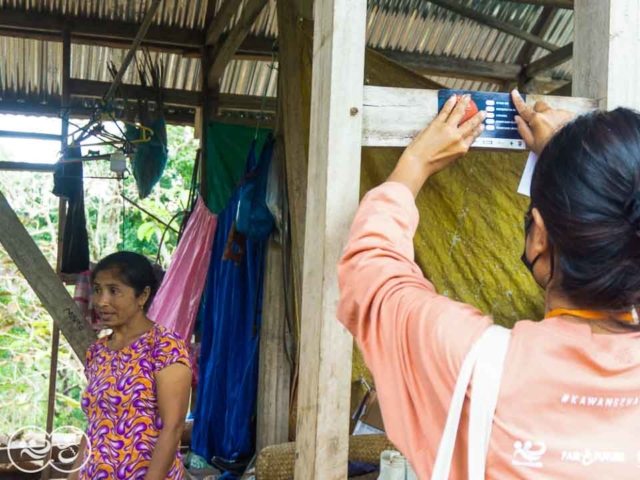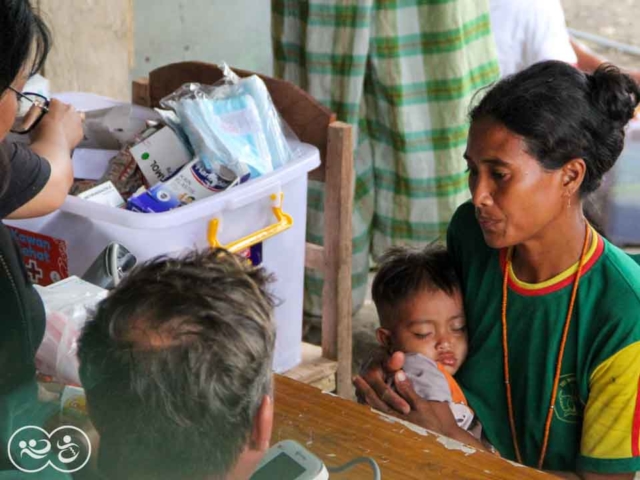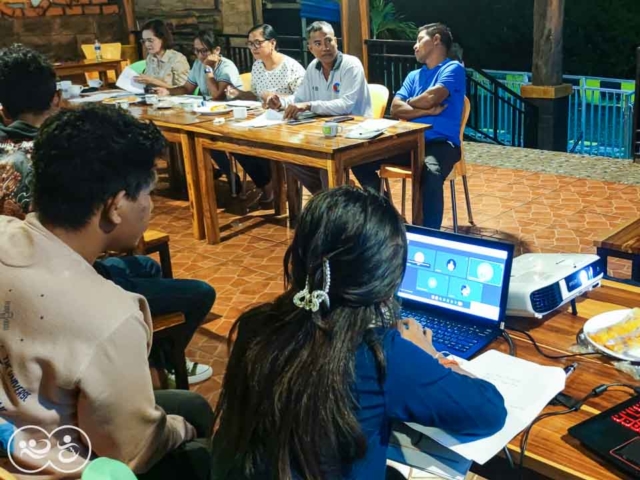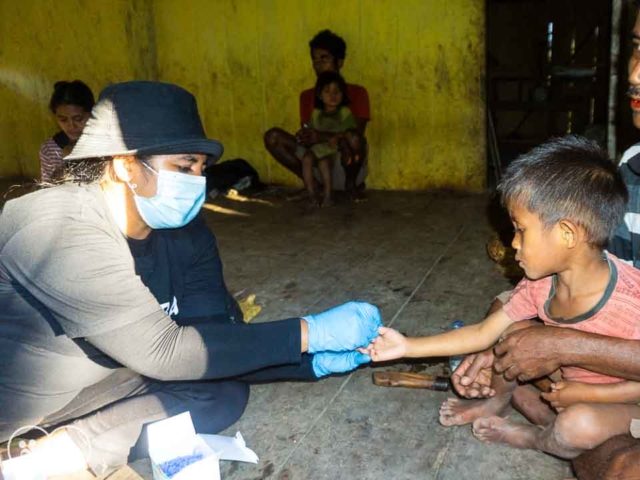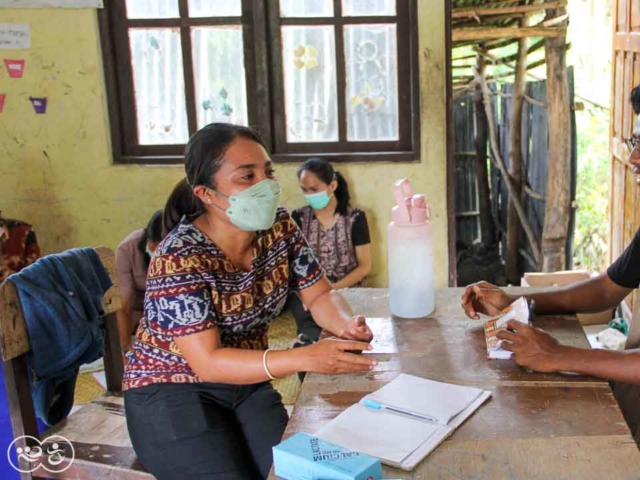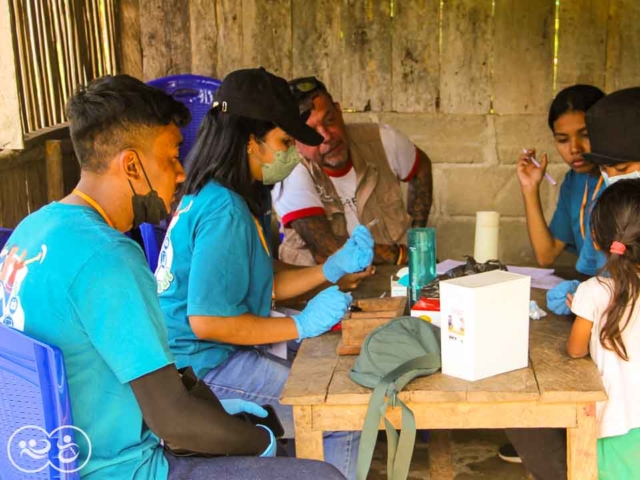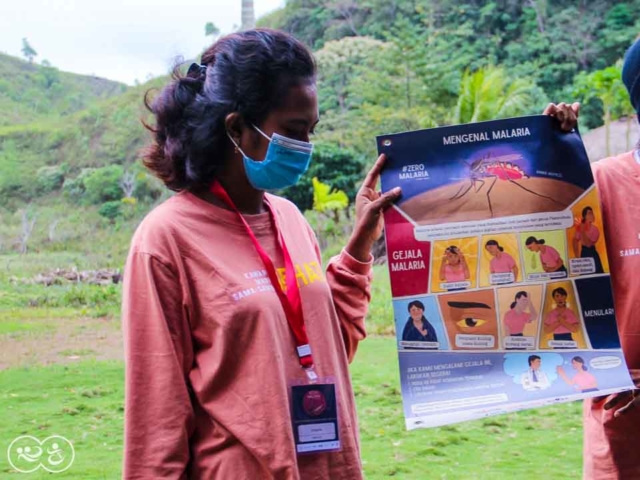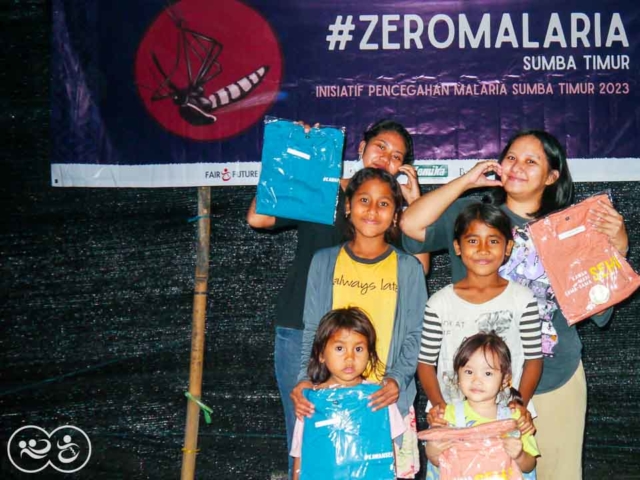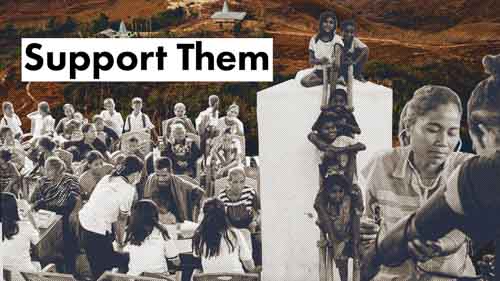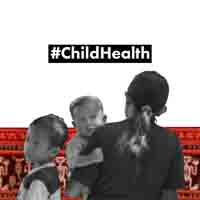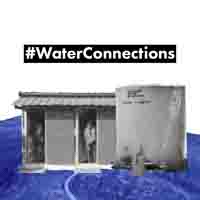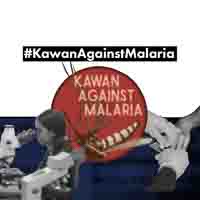Rambu Mirna’s Fight: A Family’s Journey Through Malaria Testing and Treatment in East Sumba’s Most Remote Region
In the remote area of East Sumba, Indonesia, where roads are more like trails and healthcare is a distant dream, lives Rambu Mirna and her four children.
Their home, a humble structure made of bamboo and thatch, stands isolated, almost swallowed by the land and vegetation.
The Arrival of Hope
One morning, the sound of engines broke the usual silence. It was the “Truck of Life” from the Fair Future Foundation, along with numerous volunteers from the Kawan Sehat program, navigating roads that barely qualify as such. The team had come to conduct malaria tests as part of their #ZeroMalaria mission. Mirna had heard of malaria but never thought her family could be at risk.
The Tests That Changed Everything
The socio-medical team, equipped with microscopes and rapid diagnostic tests, set up a makeshift clinic in the house. Mirna and her children were among the first to be tested. The results were alarming: three of her four children tested positive for different types of Plasmodium parasites. Her youngest was afflicted with Plasmodium falciparum, the most lethal form, while the other two had Plasmodium vivax, known for causing relapses.
Immediate Action and Treatment
There was no time to lose. The team immediately administered antimalarial medication, tailoring the treatment to each child’s specific type of Plasmodium. Mirna watched, her eyes filled with a mixture of fear and gratitude, as the team worked meticulously to ensure the correct dosages. A nurse from the Puskesmas Mahu (Local Medical Center) was there and will ensure that the treatment is taken correctly and to its full term.
Beyond Medication: A Holistic Approach
But the team’s intervention didn’t stop at medication. They also distributed insecticide-treated mosquito nets to the family and conducted indoor residual spraying in their home to kill any lingering mosquitoes. They also provided training and education. These measures aimed to reduce the risk of future infections, especially given the challenges of managing relapses in such remote areas.
Turning the tide against malaria in remote areas isn’t just a medical mission; it’s a moral imperative. Rambu Mirna’s story is a stark reminder that hope and healthcare must reach every corner, no matter how isolated. We’re not just treating diseases; we’re restoring futures.” – Alex Wettstein, Founder, President and Chief Medical Officer of Fair Future Foundation
The #ZeroMalaria program represents a lifeline for these communities, providing medical care, education, and awareness about malaria prevention. Fair Future is committed to ensuring that no one in Sumba East loses their life to malaria, and your support is instrumental in achieving this goal.
In closing, the battle against malaria in East Sumba is ongoing, and the stakes couldn’t be higher. Through #ZeroMalaria, Fair Future is determined to change the narrative, transform these communities, and save lives. Join us in this life-saving mission!
Thank you very much for your support.
Alex Wettstein – Fair Future Foundation medico-social camp in East Sumba – Rumah Kambera, Lambanapu, 30th of September, 2023.
Faces and Places of Change: Capturing the #ZeroMalaria Journey
Malaria remains one of the most devastating diseases affecting East Indonesia, with thousands of deaths occurring annually and implications for families, communities, and economies.
As we are doing here in Sumba Timur, improving access to clean water and healthy sanitation facilities helps significantly reduce the spread of malaria by limiting the habitats of mosquitoes. Mosquitoes need water to breed; if there is no standing water, if the water stays cool, stays out of the light and circulates, they cannot reproduce. In addition, adequate sanitation facilities reduce individuals’ exposure to disease-carrying mosquitoes.
Clean water, such as #waterconnections projects, actively participates in preventing the complications of malaria. People with malaria need to drink plenty of water to avoid dehydration, which can be difficult in areas where access to clean water is limited, as is the case in the regions where we are right now with the @fairfuturefoundation and @kawanbaikindonesia teams.
In short, improving access to sanitation facilities and clean or safe water is, for all of us here -in the context of our medical care programs- an essential element in the fight against malaria. It will help reduce the spread of disease-carrying mosquitoes, prevent complications and improve the recovery of people with malaria. We fight the spread of #malaria by understanding how it is transmitted, providing primary medical care and providing access to clean, uncontaminated water sources. We desperately need antimalarial drugs and rapid tests to detect the disease. You can help us by donating via the foundation’s website. @unicef and @unicefindonesia? Are you ready to fight this epidemic with us? We are onsite, and we need you.



